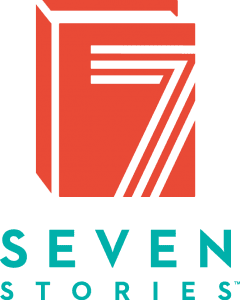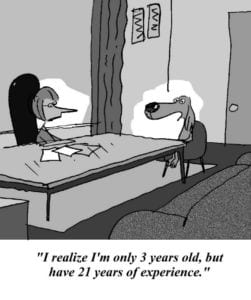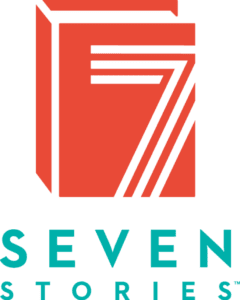The 5-Step Method Starts with Assessing Your Accomplishments
This is the most commonly skipped step in a job search even though it is the most critical step in learning what is important to you in a new job. Deciding what you want starts with understanding your accomplishments and the skills you enjoy using. Understanding those enjoyable skills and accomplishments will help you focus on them. Then, you can develop a career direction and find the job where you can use the skills you enjoy.
The History of the Seven Stories Approach
This technique for identifying your enjoyable accomplishments has its roots in the work of Bernard Haldane, who, in his job with the U.S. government in the 1940s, helped military personnel transition their skills to civilian life. Its overwhelming success won the attention of Harvard Business School where it went on to become a significant part of its Manual for Alumni Placement. Haldane’s work is being carried on today all over the world through The Center for Dependable Strengths. They have brought Haldane’s method to places as diverse as South Africa and China, to colleges and universities and in their work with young people. The Seven Stories approach was introduced to GetFive by George Hafner, who worked for Bernard Haldane.
What the Seven Stories Exercise® Entails
During this assessment you will uncover your accomplishments and most enjoyable skills – patterns that run through our lives and elements for a satisfying job. Upon completion, you will have a better perspective on what these skills are. The assessment will also help you ace interviews and feel more confident in your career search.
The Seven Stories Exercise® is divided into three parts:
In the first section, you will make a list of all the enjoyable accomplishments of your life, those things you enjoyed doing and also did well. List at least 20 enjoyable accomplishments from all parts of your life: work, youth, school years, early career up to the present. Don’t forget volunteer work, hobbies and your personal life. Other people may have gotten credit or under-appreciated what you did. What matters is that you enjoyed doing it and did it well.
In the second section, you will analyze seven accomplishments that you enjoyed the most. List them in order based on their importance to you and then utilize the worksheet template to understand why those experiences are so important to you.
Finally, in the third section you will examine your accomplishments, looking at your most significant enjoyable skills. Your results may surprise you. For example, you may be especially good at interacting with people, but it’s something you’ve always done and therefore take for granted. This may be a thread that runs through your life and may be one of your enjoyable skills, therefore you would want to focus on jobs that would allow you to interact with people. The fact is, people won’t do as well in the long run in jobs that don’t satisfy their enjoyable skills.
Do Not Skip the Seven Stories Exercise®
It will provide you with information for your career direction, your résumé, and your interviews. When you uncover your enjoyable skills, you’ll be better able to identify jobs that allow you to use them, and recognize other jobs that don’t quite fit. Enjoyable skills are patterns that run through our lives. Since they are skills from which we get satisfaction, we’ll find ways to do them even if we don’t get to do them at work. We still might not know what these skills are—for us, they’re just something we do, and we take them for granted.

Analyzing Your Seven Stories
No matter what the story is, we probe a little by asking questions like these: What gave you the sense of accomplishment? What about that made you proud?
Example:
Suzanne’s Story # 1: “When I was nine years old, there was a fire in our house and our cat had hidden upstairs. I ran back in and save the cat.”
What was the accomplishment? What made her proud?
Suzanne: “I was proud because I did what I thought was right. I had a sense of accomplishment because I was able to make an instant decision under pressure.”
Suzanne’s Story # 2: “Ten years ago, I was laid off from a large company where I had worked for nine years. I soon got a job as an administrative assistant on Wall Street. Six weeks later, a position opened up on the trading floor. I was one of three finalists, but they tried to discourage me from taking the job. I was determined to get that job and wanted to be given a chance. I went back for three interviews, demonstrated that I was the right person for the job, and eventually got it.”
What was the accomplishment? What made her proud?
Suzanne: “I fought to win. I was able to sell myself and overcome their objections. I was interviewed by three people at once. I amazed myself by saying, ‘I know I can do this job.’”
By analyzing multiple stories you can quickly name the patterns we see in both stories. What were Suzanne’s patterns?
Suzanne showed that she was good at making decisions in tense situations—both when saving the cat and when interviewing for that job. She showed a good intuitive sense and likes fast-paced, energetic situations.
After the full assessment, Suzanne realized she wanted these qualities in her job. Armed with this information, Suzanne can confidently say in an interview that she thrives on excitement, high pressure, and quick decision making and get the job that utilizes these enjoyable skills.
The Big Takeaway
Pay attention to those stories that were most important to you. The elements in these stories may be worth repeating. If none of your enjoyable accomplishments were work related, it may take great courage to eventually move into a field where you will be happier. Or you may decide to continue to have your enjoyment outside of work.
It is important to realize that the Seven Stories Exercise® will not tell you exactly which job you should have, but the skills to look for in a job that you will find satisfying. You’ll have a range of jobs to consider, and you’ll know the skills the jobs must have.










